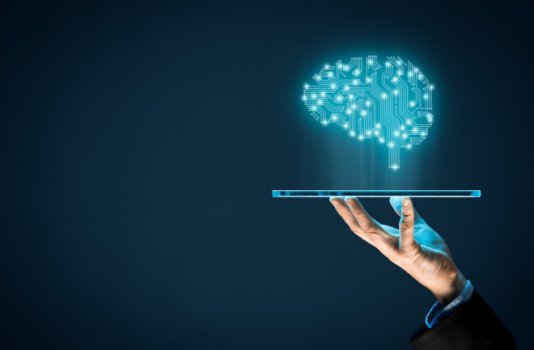The advantages of artificial intelligence are many and only growing. AI can quickly translate a passage of text — for example, this article —into whatever language you'd prefer to read. AI can easily sort through tremendous amounts of data, providing humans with organized information at the touch of a few keystrokes. It can aid in the diagnosis of cancers, beat a Go master, choose a movie you'd like and order a pizza for you to eat while you watch it.
What Does This Mean?
If you're looking for the value of AI, you need look no further than its skill at protein folding. An AI program called AlphaFold proved capable of predicting a protein's structure based on its amino acid sequence, something humans have struggled to do. This is no fancy biological party trick. Predicting the shape of proteins will help researchers better understand the molecular structure of cells and be a great help in drug discovery and development, benefiting us all.
AI is fast, efficient, and in many ways even lives up to the second half of its name: intelligent. Some experts predict that not too many years hence, AI will reach the holy grail of general AI; that is, it will no longer be limited to specific tasks, such as protein folding or text translation, but will be able to do pretty much anything human intelligence can do, a hypothetical moment often referred to as "the singularity." At that point, the possibilities of AI would be limitless, with the potential to help humans in ways we haven't even imagined yet, says Max Tegmark, physicist and machine-learning researcher at MIT.
Continue reading: https://www.discovermagazine.com/technology/the-pros-and-cons-of-artificial-intelligence
What Does This Mean?
If you're looking for the value of AI, you need look no further than its skill at protein folding. An AI program called AlphaFold proved capable of predicting a protein's structure based on its amino acid sequence, something humans have struggled to do. This is no fancy biological party trick. Predicting the shape of proteins will help researchers better understand the molecular structure of cells and be a great help in drug discovery and development, benefiting us all.
AI is fast, efficient, and in many ways even lives up to the second half of its name: intelligent. Some experts predict that not too many years hence, AI will reach the holy grail of general AI; that is, it will no longer be limited to specific tasks, such as protein folding or text translation, but will be able to do pretty much anything human intelligence can do, a hypothetical moment often referred to as "the singularity." At that point, the possibilities of AI would be limitless, with the potential to help humans in ways we haven't even imagined yet, says Max Tegmark, physicist and machine-learning researcher at MIT.
Continue reading: https://www.discovermagazine.com/technology/the-pros-and-cons-of-artificial-intelligence

